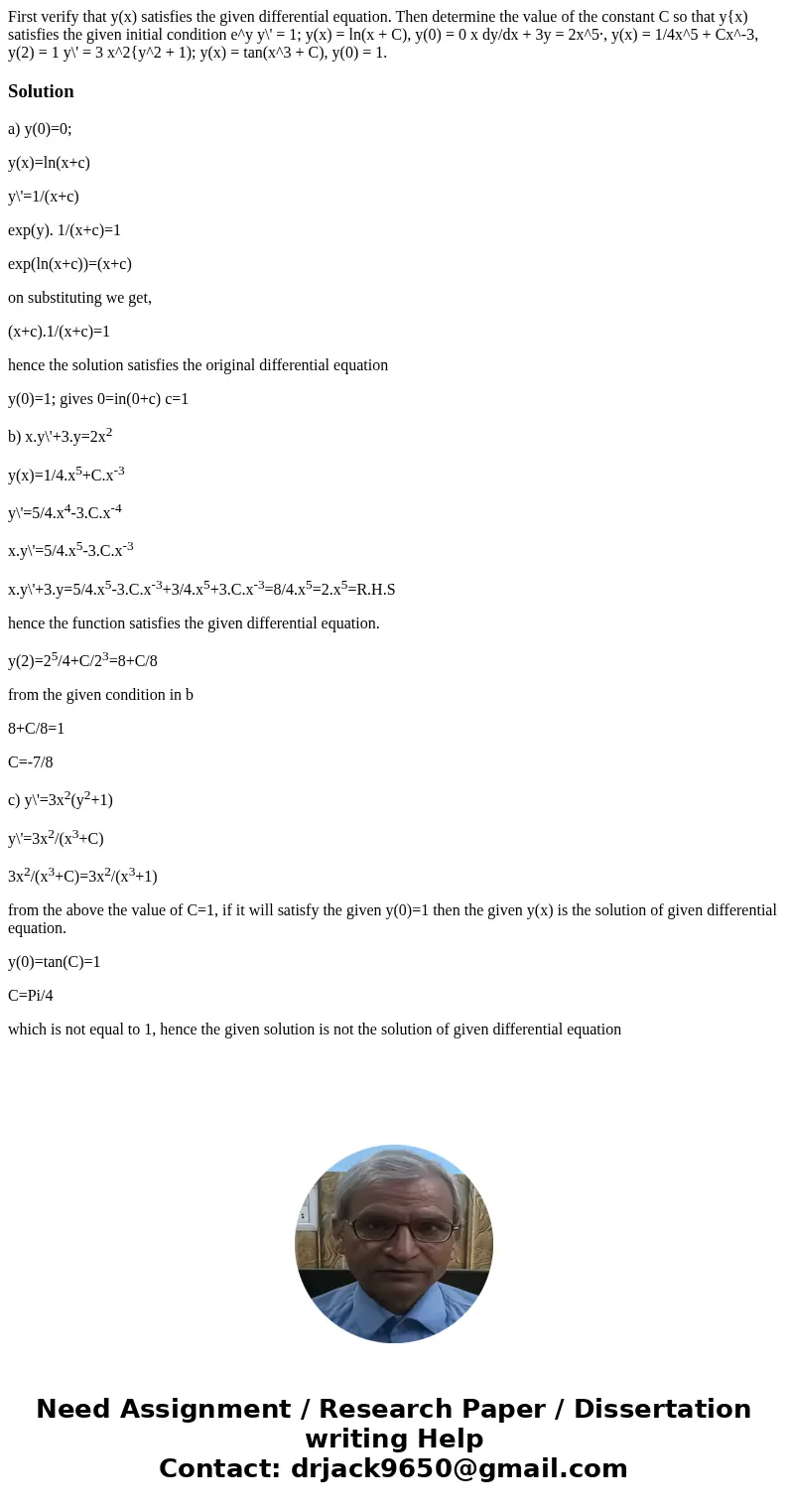First verify that yx satisfies the given differential equati
Solution
a) y(0)=0;
y(x)=ln(x+c)
y\'=1/(x+c)
exp(y). 1/(x+c)=1
exp(ln(x+c))=(x+c)
on substituting we get,
(x+c).1/(x+c)=1
hence the solution satisfies the original differential equation
y(0)=1; gives 0=in(0+c) c=1
b) x.y\'+3.y=2x2
y(x)=1/4.x5+C.x-3
y\'=5/4.x4-3.C.x-4
x.y\'=5/4.x5-3.C.x-3
x.y\'+3.y=5/4.x5-3.C.x-3+3/4.x5+3.C.x-3=8/4.x5=2.x5=R.H.S
hence the function satisfies the given differential equation.
y(2)=25/4+C/23=8+C/8
from the given condition in b
8+C/8=1
C=-7/8
c) y\'=3x2(y2+1)
y\'=3x2/(x3+C)
3x2/(x3+C)=3x2/(x3+1)
from the above the value of C=1, if it will satisfy the given y(0)=1 then the given y(x) is the solution of given differential equation.
y(0)=tan(C)=1
C=Pi/4
which is not equal to 1, hence the given solution is not the solution of given differential equation

 Homework Sourse
Homework Sourse